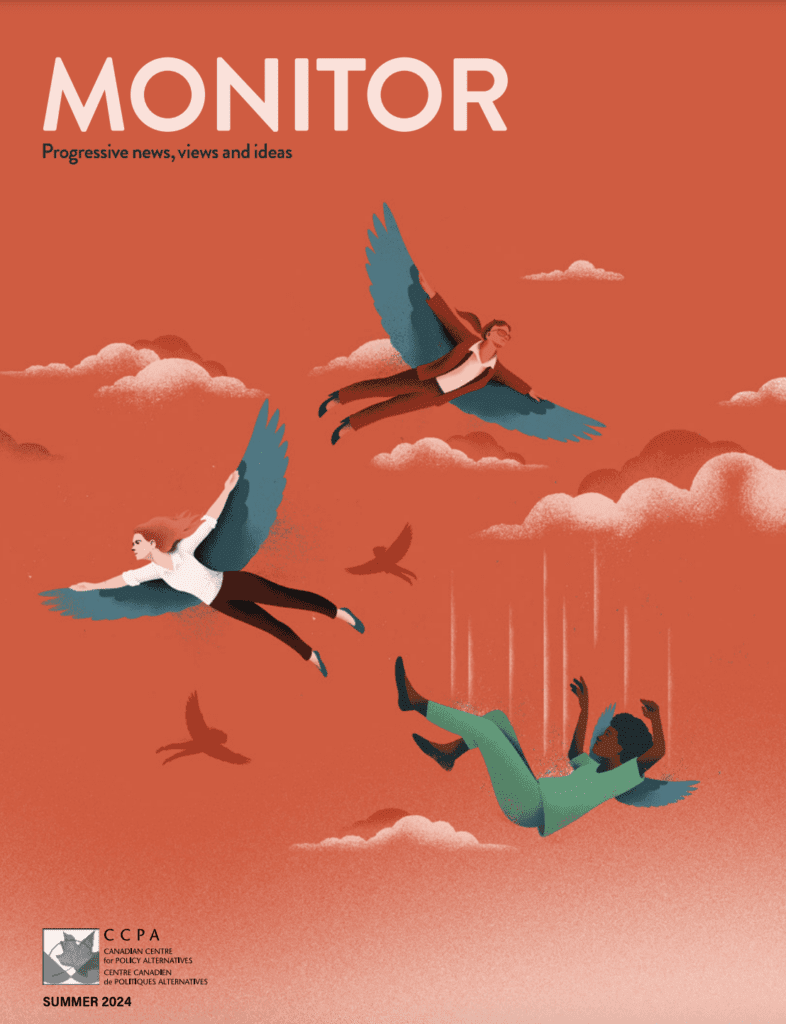Beyond Recovery: The pandemic’s heavy toll on women in Canada
In March 2020, when the COVID-19 pandemic hit home, the walls rapidly closed in—especially for women.
Some lost their job due to the economic shutdown at the start of the pandemic.
Some figured out how to work from home (often with little ones underfoot or home schooling).
Some coped with having to risk their health and safety by reporting to work in hospitals, grocery stores, and other front-line “essential” jobs.
Some decided the stress of work was too much and either quit or retired.
For a brief moment, they were lauded as sheroes. And then, as the pandemic dragged on, showing no mercy, women faded into the background—doing invisible work for low pay and at high risk of getting sick as the economy gradually re-opened, federal government income supports dried up, and duty called.
CCPA Senior Researcher Katherine Scott was tracking women’s fate at home and in the workplace at the start of the pandemic, worrying that generations of women’s progress in the workplace was unravelling at breakneck speed.
Would women ever fully recover from the harsh realities of the pandemic?
This issue of the Monitor reveals the good, bad and the ugly. It tells the complicated story of women’s recovery from those early days of the pandemic.

Get The Monitor delivered to your inbox:
SubscribeWhen “survival” jobs become “essential” work
In the lexicon of immigrant settlement services, the term “survival jobs” is used to signal temporary employment intended to ensure survival in the short term,…
Unequal pandemic, unequal recovery
The COVID-19 pandemic that swept the globe in 2020 not only threatened people’s health but exposed and exacerbated entrenched inequalities. Women bore the brunt.

From leader to laggard: A festering crisis in long-term and home care
In 1974, Manitoba launched its universal, provincewide home care program—the first of its kind in Canada; one that would be emulated by most provinces.
Beyond Recovery: The pandemic’s heavy toll on women in Canada
Our content is fiercely open source and we never paywall our website. The support of our community makes this possible.
The pandemic wreaked havoc on hotel workers
In 2020, the COVID-19 pandemic triggered a devastating upheaval in hotel workers’ work lives. Closures and travel restrictions, especially in the first wave of the…
A timeline: The pandemic’s impact on women in the workforce
The COVID-19 pandemic upended women’s economic gains, wiping out 35 years of progress in two short months.
Our content is fiercely open source and we never paywall our website. The support of our community makes this possible.
Make a donation of $35 or more and receive a print version of The Monitor magazine for one full year and a donation receipt for the full amount of your gift.




